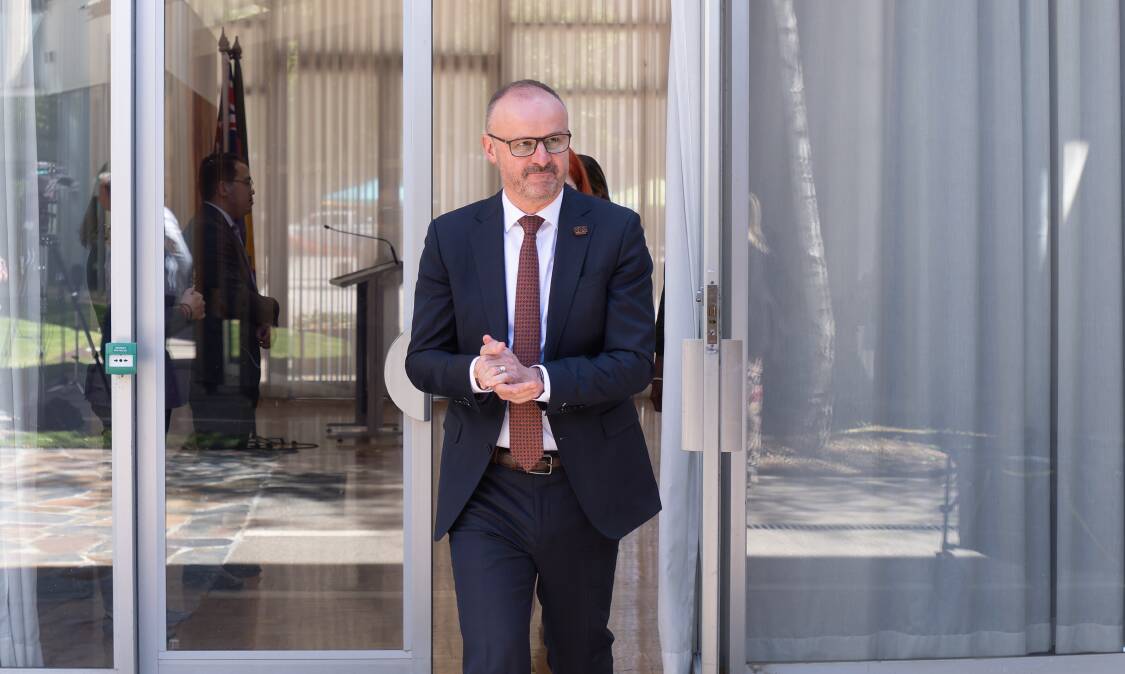Introducing restrictions on short-stay rental accommodation in Canberra would do more harm than good, with little evidence the services - such as Airbnb - are affecting housing affordability, the government has said.
But the territory will next year consider a registration scheme to keep track of short-stay rental properties, which the government said would provide up-to-date information about the impact of the sector on affordability in the capital.
"Given there is little evidence that [short-term rental accommodation] is impacting affordability in the ACT, on balance, the costs of any regulation (particularly restrictions on the operation of the sector) would likely outweigh any benefits," the government has said.
"However, there may be merit in exploring a registration scheme, provided the costs are not disproportionate to the ACT's small STRA sector."
Chief Minister Andrew Barr this week tabled a response to a Legislative Assembly motion, which in March called on the government to consider tighter regulation of Airbnb-style rentals.
The government said there were 1133 entire homes available as short-term rentals in the ACT, citing figures released by the Real Estate Institute of Australia in September. The number of properties available accounted for less than 1 per cent of the capital's residential dwellings.

"The majority of STRA [short-term rental accommodation] is concentrated in the City, Braddon and Kingston, and to a lesser extent in Phillip and Belconnen Town Centre," the government said.
"This amount is not sufficient to have a significant impact on long-term rental supply or rents. Work undertaken by the Better Regulation Taskforce in 2022 also concluded that STRA is having negligible to low impacts on housing affordability, and, in aggregate, there is no discernible relationship between growth in STRA and rental vacancy rates."
The Real Estate Institute of Australia report found there had been a 66.4 per cent increase in the number of short-stay rentals available in the year to the March 2023 quarter.
The government said restricting supply of short-term rentals would not necessarily result in increased supply in the long-term rental market, and that short-term rentals provided "considerable benefits" to the ACT.
"In the ACT, regulation to restrict STRA could also create unintended consequences, such as increased demand for long-term rentals from people who come to Canberra regularly for work (i.e., members of parliament and their staff) but do not permanently occupy a dwelling," the government said.
"This additional demand could negate any benefits from a modest amount of STRAs moving to the long-term market."
The government also said Airbnb guests spent $187 million in the ACT in 2022, which supported about 1200 jobs in the territory, including cleaners, property managers, gardeners, and indirect roles in the hospitality sector.
"The STRA market also offers social benefits by providing options for emergency and crisis accommodation, those transitioning between homes, and non-tourist visitor groups such as people moving to the ACT or visiting to access healthcare," the government said.
"STRA has provided additional accommodation options near hospitals. For example, Belconnen has been one of the fastest growing STRA areas within the ACT, meaning there are more options for people who require proximity to North Canberra hospital."
A cap on the number of properties that could be let as short-term rentals would be difficult to introduce and result in "equity and distributional issues" where some owners are prevented from earning income while others benefit.
"At this stage, the government does not consider a reduction in STRA in the ACT would have a significant impact on rental affordability in Canberra. Consequently, a tax targeted on reducing short-term rental accommodation to achieve this outcome would be inappropriate," the government said.
A government-run survey from September 2022 on short-term rental accommodation, cited when the motion was debated, found 58 per cent of the roughly 1500 respondents said they would sometimes or regularly use short-term rental accommodation.

The survey found 2 per cent of respondents had an entire property available on a short-term rental platform, and 2 per cent of respondents were homeowners who had one or more rooms available for rent.
Victoria now has a 7.5 per cent consumer levy on short-term rental bookings, while NSW requires most property owners to register their rentals and abide by a 180-day annual cap for unhosted properties.
Queensland is considering a register of short-stay rentals, while WA will introduce a register and a local government approval process for whole properties rented out for more than 90 nights a year.
Owners in WA will also be handed $10,000 in incentives to rent their properties to long-term tenants instead of letting dwellings as short-term rentals.
The ACT government in March agreed to consider limits on the number of days property owners could let a property as a short-stay rental, taxes and registration, following a motion moved by the then-Greens MLA Johnathan Davis.
Mr Davis resigned from the Legislative Assembly and his party on November 12 after he had been stood down by the Greens over allegations he had sex with a minor and an inappropriate, but not illegal, relationship with a 17-year-old.
Mr Davis, through a lawyer, has declined to comment on any of the allegations put to him.







